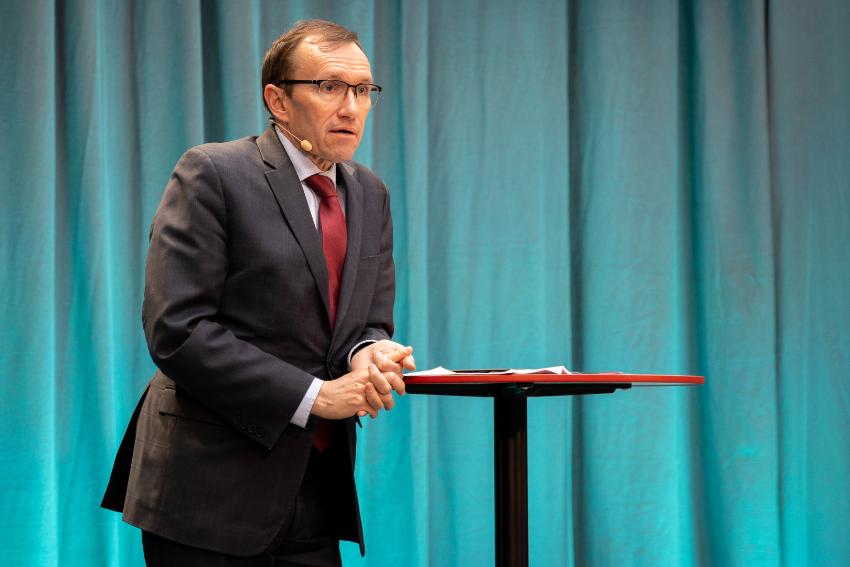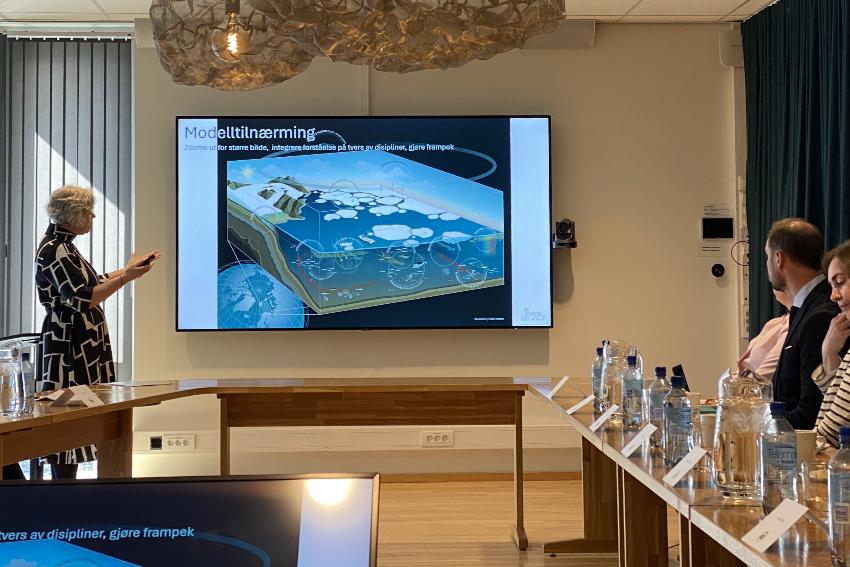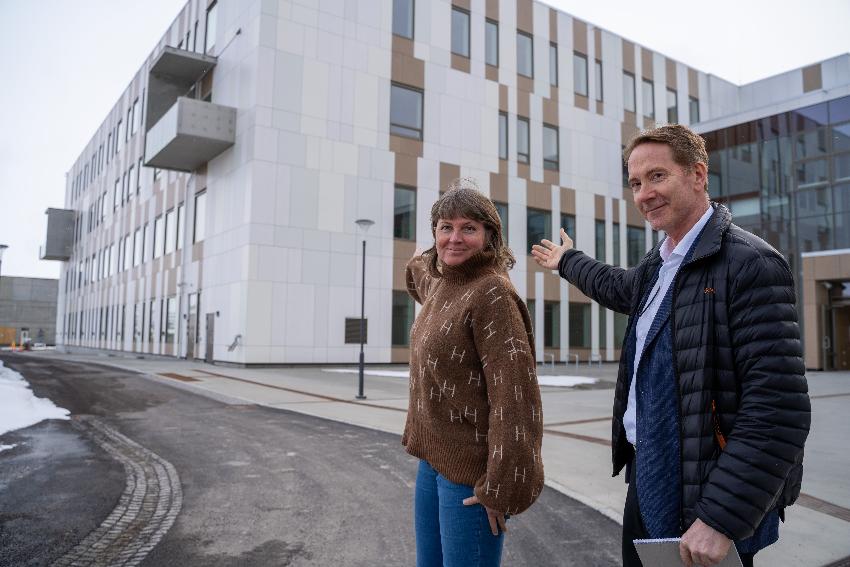“We have not learned enough from what’s happening in Ukraine”
Ukraine has been in a state of war for 10 years. Can the Nordic countries learn from how the Ukrainians have maintained civil resilience in the face of great trials?
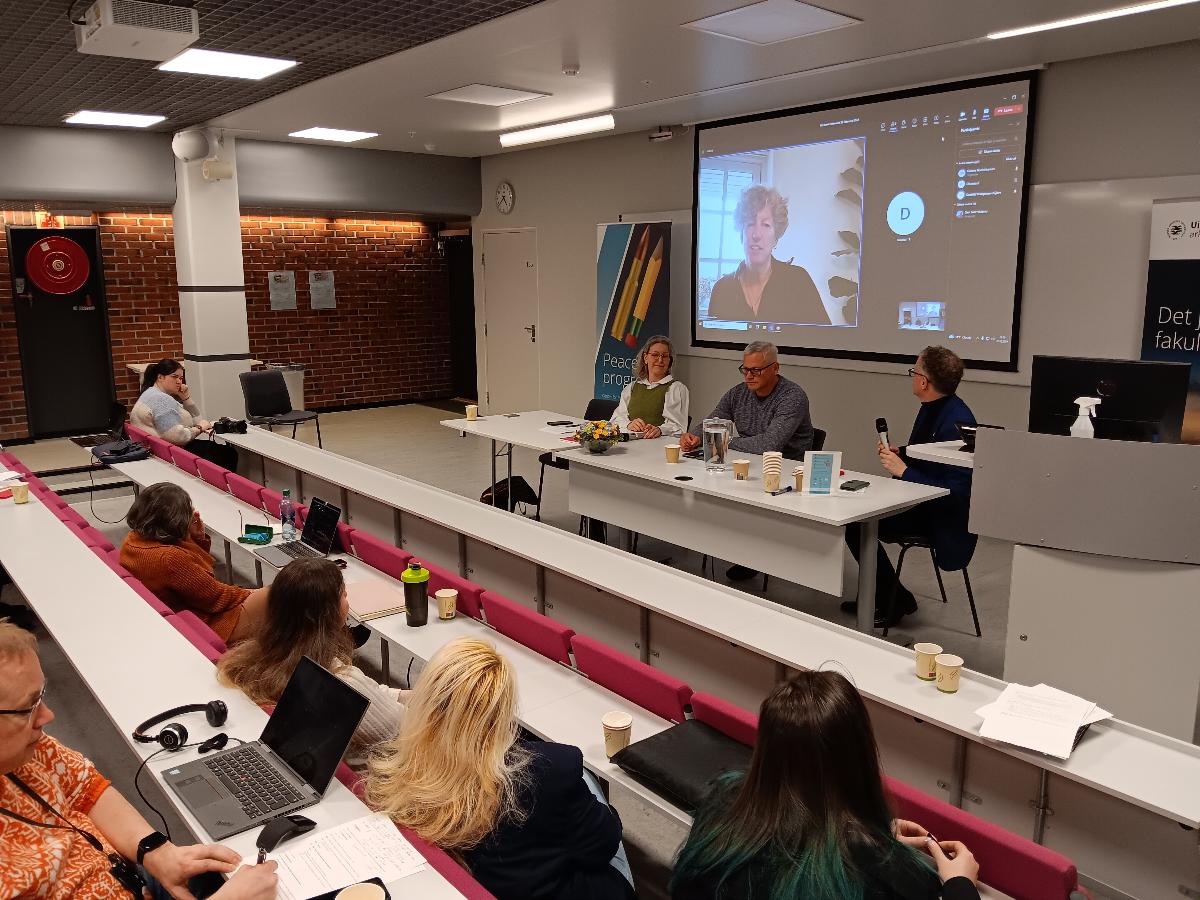
The Ukrainian Oleksandra Matviichuk is a Nobel Peace Prize winner, human rights lawyer, and the founder and leader of the Centre for Civil Liberties. 10 years after Russia's annexation of the Crimean Peninsula, she delivered a video-transmitted speech from Kyiv to participants at the conference “A decade since Russia’s invasion of Ukraine”. The main organizer was the Constitutional Law Group at the Faculty of Law, in collaboration with The Grey Zone Research Group at the Centre for Peace Studies.
A war between two systems
Matviichuk believes it is crucial that extensive efforts are made to document and uncover war crimes that have occurred in Ukraine and that Vladimir Putin should be held accountable by an international court.
"This is not just a war between two states, Russia and Ukraine. This is a war between two systems, authoritarianism and democracy. How can we in the 21st Century defend human beings, their lives, their freedom and their dignity? Can we rely on the law, or does only brutal force matter?" She asked.
Matviichuk believes that the answers to these rhetorical questions will shape the future of humanity.
“It is important to understand this, not just for people in Ukraine, but also for those in Syria, China, Iran, Nicaragua or Sudan”, she emphasized.
I don’t think we’re adequately prepared for how we are used as targets through information and influence campaigns.
Matviichuk warns that several years of war could lead to what she referred to as "learned helplessness" or a form of political passivity. She urges the population in democratic countries to come to terms with the realities they are facing.
“This is not just the Ukrainians' war, it may just be a beginning. The truth is that all efforts matter. My efforts are probably small, just a drop, but together we are an ocean”, Matviichuk concluded.
Hybrid warfare
How the civilian population can resist is a question that was also highlighted during the conference by Gunhild Hoogensen Gjørv, professor of security studies and geopolitics at UiT. She believes that the way Russia has escalated to war in Ukraine may be important to pay attention to when it comes to building preparedness in Nordic countries.
Gjørv pointed out that Russia has attempted to foster doubt, internal division, and political polarization in many countries. Such intelligence-led campaigns and operations can further open the door for Russian influence.
"Our values are actually being both targeted and challenged. What we see happening in the Nordic countries already today, and has been going on for quite a few years already, are a variety of what we can call hybrid threat activities, through different mechanisms such as hacking, espionage or illegalists. It’s a call to awareness and also to building up our resistance", Gjørv said.
For Gjørv, it is an important point that we as a population become aware of what is happening beneath the surface.
"We have not learned enough from what’s happening in Ukraine. I don’t think we’re adequately prepared for how we are used as targets through information and influence campaigns", Gjørv concluded.
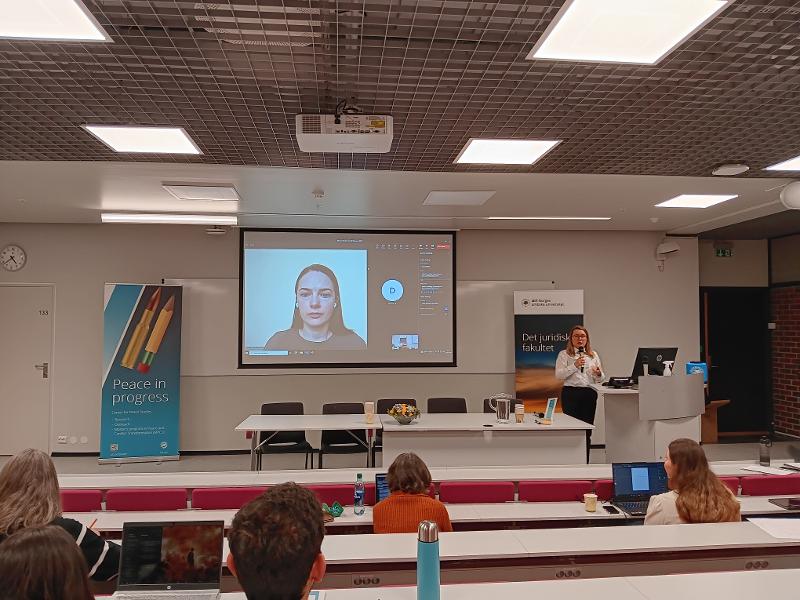
Attacks on civilian targets
During the conference, it was also addressed how Ukrainians have built up significant cultural resilience and preparedness to protect infrastructure.
Artem Galushko, a postdoctoral researcher at UiT, pointed out that Russian forces do not distinguish between military and civilian targets. To weaken the civilian population, both energy sources and food supplies have been subjected to heavy attacks.
“The recovery and reconstruction in Ukraine is expected to take over ten years”, he said.
Albina Mahomedova, leader of the Ukrainian Association in Tromsø, emphasized that museums and cultural heritage sites in Ukraine have also been deliberately destroyed by Russian bombs and artillery. She believes the war has led to a rebirth of Ukrainian culture in a much stronger sense than before, through a process she calls "Ukrainization."
“We really started remembering who we are”, Mahomedova stated.
War of memory
Kari Aga Myklebost is a professor of history at UiT and researches how Russian hybrid warfare affects Norway. She highlighted that Putin's regime is already using the falsification of history as a weapon, to gain more influence in Norway and among its own population. She refers to attempts to rewrite history regarding exhibitions, commemorations, and monuments.
Myklebost describes this strategy as a "war of memory" and considers it a part of Russia's security policy, as a supplement to the use of military power.
Myklebost finds it very difficult to have an open dialogue with Russian colleagues who are in their home country. She has noticed a significant change since 2014, in terms of the control they are subjected to by Putin's regime.
“They’re being used. They have no freedom to express other views than the official one on the ongoing warfare in Ukraine. In this situation there is no way that I can cooperate with colleagues in Russia. I prefer to work with Russian colleagues who are in exile. That’s when I feel safe”, Myklebost said.
